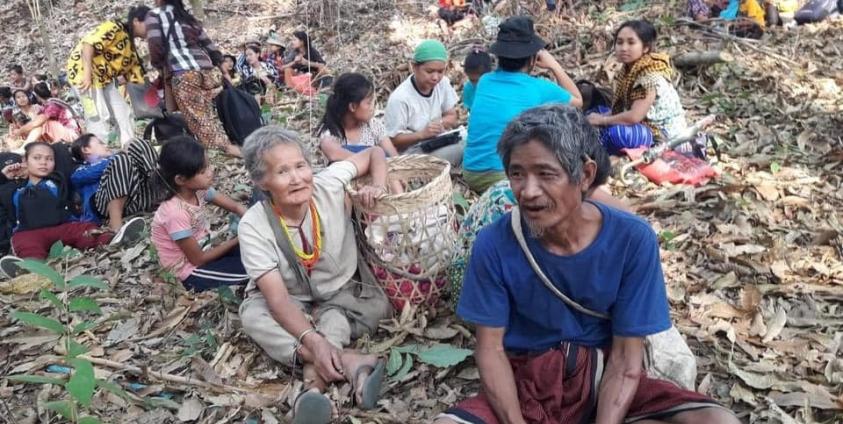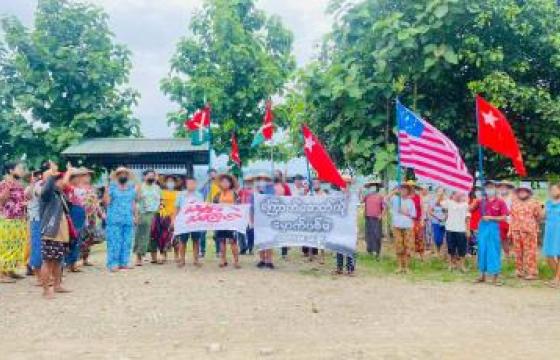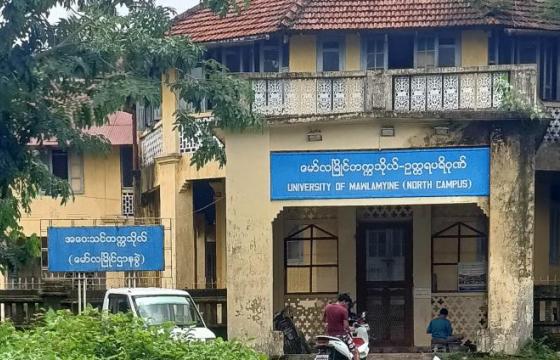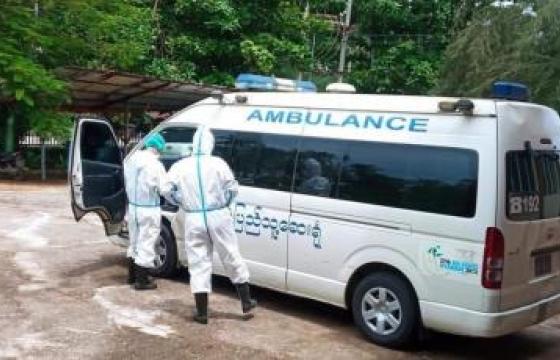Thousands of fleeing Karen refugees in urgent need of food, other utensils and emergency assistance who were pushed back from the Thai border, have finally been allowed to receive aid from the NGOs based in Thailand by the Thai army controlling the Thai- Myanmar border in Mae Sariang district.
Yesterday 20 trucks laden with emergency aid from international NGOs were finally permitted to cross from Thailand and distributed among thousands of refugees still fearing more bombing attacks by the Myanmar military on their villages inside KNU–held territory.
More than 12,000 Karen villagers have been displaced according to information from Naw Wah Khushi, spokesperson of the KPSN (Karen Peace Support Network).
Saw Bway Do, an official of the Karen Refugee Committee (KRC) said: “We cannot even get the exact number of refugees. They fled their villages without taking anything. They are in need of food and accommodation. Some 20,000 people from Takawtobaw, Daypono, Thadardae and Thaemudae villages which are located in the KNU-Brigade-5 territory, are hiding in the forest.”
Although the people from Malnuhta, Theekawhta, Eithuhta and Uwaykalo villages which are located near Thanlwin River fled to Thailand, most who turned back by Thai government, according to the Karen CSOs, and forced to hide in the forest near Salween River.
Saw Bway Do added, “The Thai government has only permitted a small number of refugees to enter on a temporary basis “and they are not officially classified by Bangkok as refugees.”
However, Thailand's Prime Minister General Prayut Chan-o-cha stated “officials have not forced refugees back to Myanmar. We didn't force them (to return) with guns, we even shook hands and wished them good luck," Prayut said in a media briefing.” The general who led the 2014 military coup in Thailand added “There is no way we will push them back, if the fighting is still ongoing. But if there is no fighting now, why can they not return home?"
The Thai foreign ministry spokesperson Tanee Sangrat, stated that of 2,897 people from Myanmar who crossed into Thailand, 2,352 of them went back to the other side of the border of their own accord, while 545 remained on the Thai side.
This official narrative from the Thai government of a “voluntary return” is contradicted by reports of international NGOs and Karen eye-witnesses. The United Nations refugee agency also confirms it has received similar reports of refugees refused entry.
International NGOs have urged the Thai government to respect Article 7 of the International Covenant on Civil and Political Rights (ICCPR) and Article 3 of the Convention against Torture and Other Cruel, Inhuman or Degrading Treatment or Punishment (CAT), both of which Thailand is a signatory to.
Under article 7 the non-refoulment principle guarantees that no one should be returned to a country, where they would face torture, cruel, inhuman or degrading treatment or punishment and other irreparable harm.







